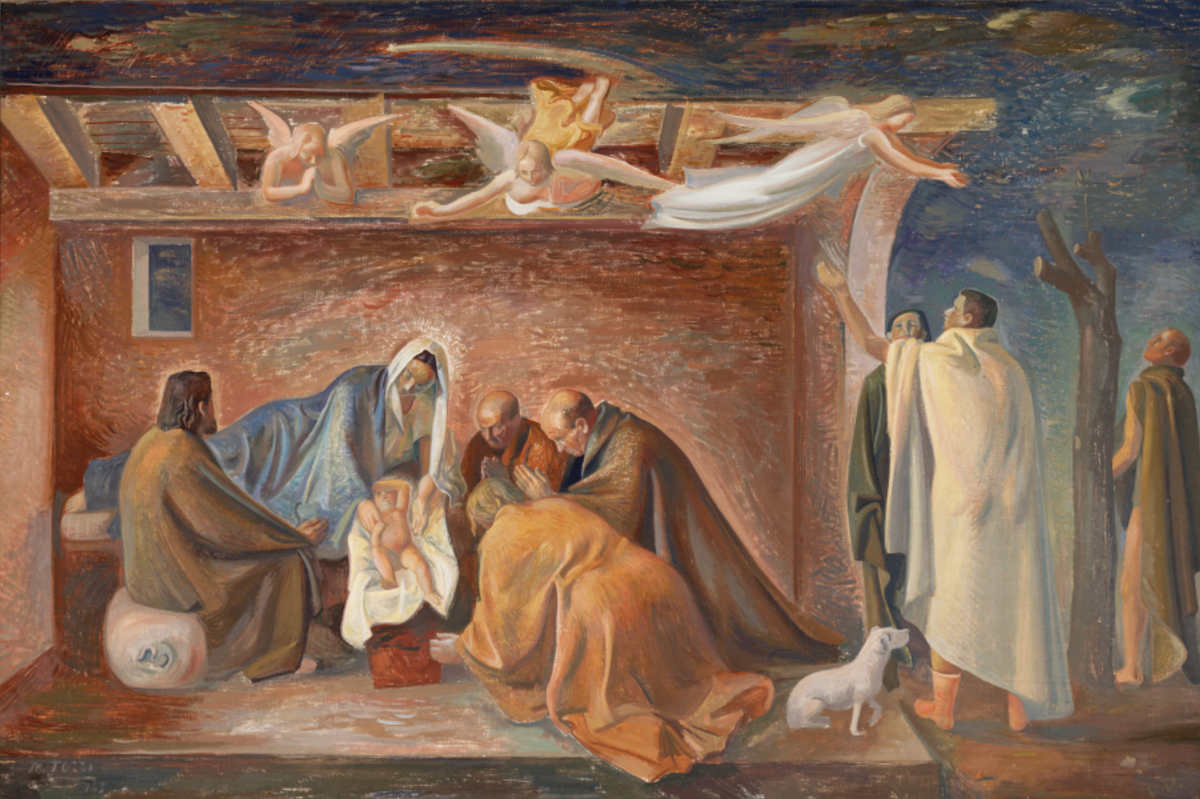A Gilded Manger is No Longer Christ's
Persecution and poverty of spirit do not run counter to the spirit of Christmas. In fact, such conditions are at the heart of incarnation itself.

This, from Sergei Bulgakov, is one of my favorite Christmas reflections.
It's challenging. Harsh, even. But it's beautiful and hopeful insofar as we can humble ourselves to admit the many hopeless margins of our earthly life.
It's often said around this time of year that Christmas, for all its joys, can be a hard season for those who've suffered loss, or for those who feel they have no family or friends, or for those sensitive people upon whom the burden of the world's suffering weighs heavy. Our expectations for these weeks often run much hotter than the enthusiasm (or energy) we can muster, and we can be left feeling like we miss out on whatever joy seems to so readily present itself to everyone else.
But these sentiments do not run counter to the spirit of Christmas. In fact, they are at the heart of incarnation itself, if we reckon forthrightly with the humble conditions wherein Jesus was born – poor and unadorned – and wherein we find ourselves when we stand helpless before the seemingly intractable problems of our life in this world.
What's important to remember is that, just as we celebrate the birth of a baby (any baby) for no reason other than that it is good always and no matter the circumstances under which it happens, there is no need for any "earthly defense" for what we celebrate (yes, not even "sufficient" joy and festivities). We don't have to "feel" it. We don't have to "show" it. Christmas doesn't have to "prove" itself. The good in it is self-evident, and that good persists even when the world seems to wage war against it – like when a baby arrives amidst a broken family situation.
Believing in this self-evident good, after all, is our absurd act of faith. It's why we celebrate the birth of a poor baby – a feast that would otherwise be laughable and ridiculous.
Like our humble, broken, and even corrupt hearts and homes in which the Spirit of God chooses to abide, Jesus' manger itself is not gilded.But he is in it, nonetheless.
From Churchly Joy by Sergius Bulgakov:
And to us who come, in the midst of the wicked world torn by malice, to venerate the Infant lying in the manger, what law and wisdom of life are given by this miraculous sign? To what do the angels now call those who come to venerate Christ? They call them to receive into their hearts His humiliation, His persecution, His Crucifixion, as the sole sign of the Christian life, as its power and triumph.
For the best self-attestation of the Good is its defenselessness in the face of the power of evil. The best attestation of Truth is silence in the face of much-talkative falsehood. The supreme manifestation of Beauty consists in the unadornment by vain adornment.
The power of God triumphs by means of itself, not by means of the power of this world. For the world, there is no power of God. The world does not see and does not know the power of God: it laughs at the power of God. But Christians know that the sign of God is powerlessness in the world – the Infant in the manger.
And there is no need to gild the manger, for a gilded manger is no longer Christ’s manger. There is no need for earthly defense, for such defense is superfluous for the Infant Christ. There is no need for earthly magnificence, for it is rejected by the King of Glory, the Infant in the manger.
But there is a need for the authentic revelation of the God of Love. There is a need for the image of all-forgiving meekness, praying for His enemies and tormentors. There is a need for the image of the way of the cross to Christ's Kingdom, to defeat evil by the triumphant self-evidence of good. There is a need for the image of freedom from the world.
And powerless, we are powerful. In the kingdom of this world we desire to serve the Kingdom of God; we believe in, call, and await this Kingdom. For we have come to know the sign of the Infant in the manger. Power in powerlessness, Triumph in humiliation.
And let our heart be our manger, in which we bear the divine sign, the sign of the cross. By this sign reigns the King of kings, the Infant in the manger. In Him and with Him we are united forever by the fact He was made man. We call him Emmanuel – God with us.





